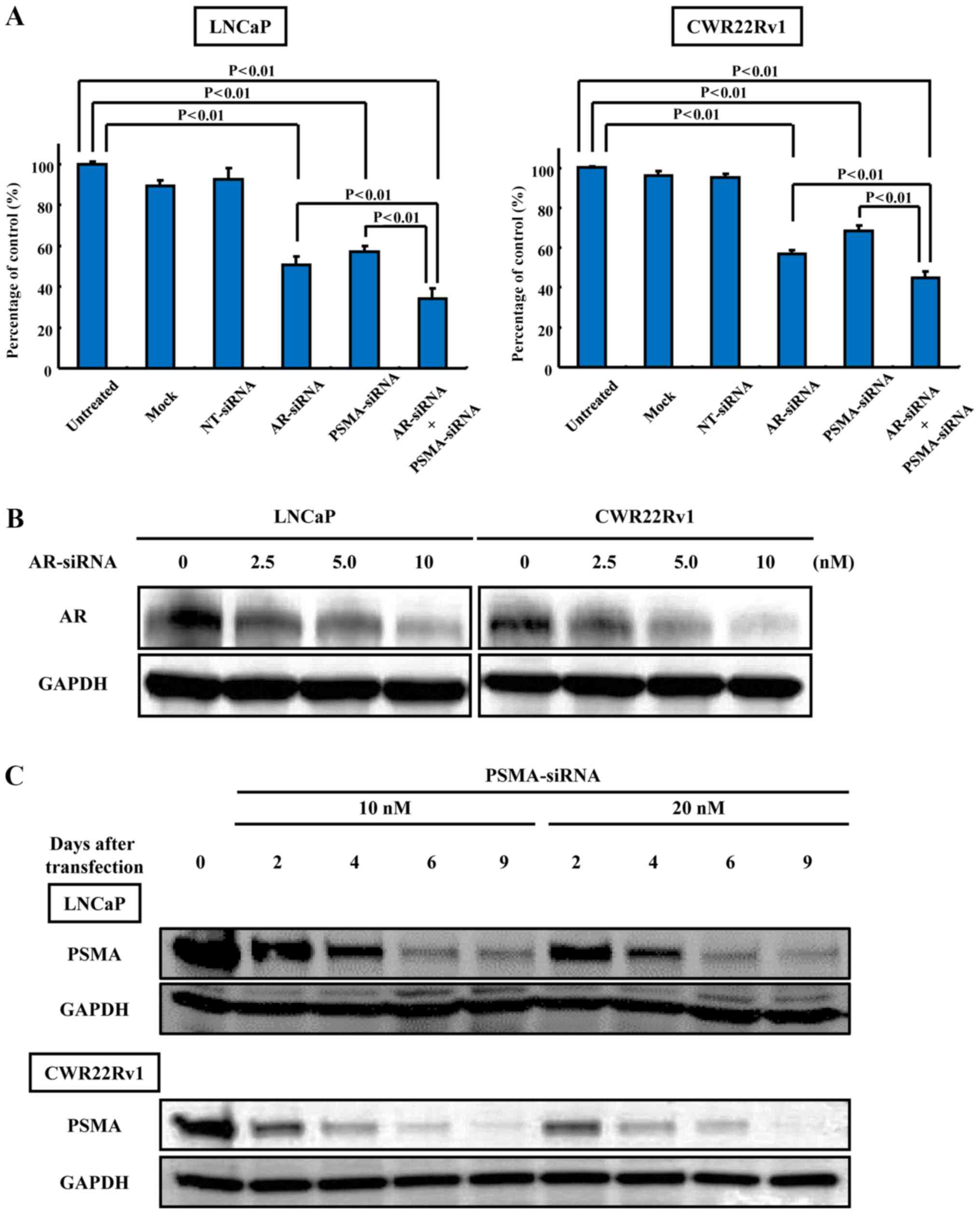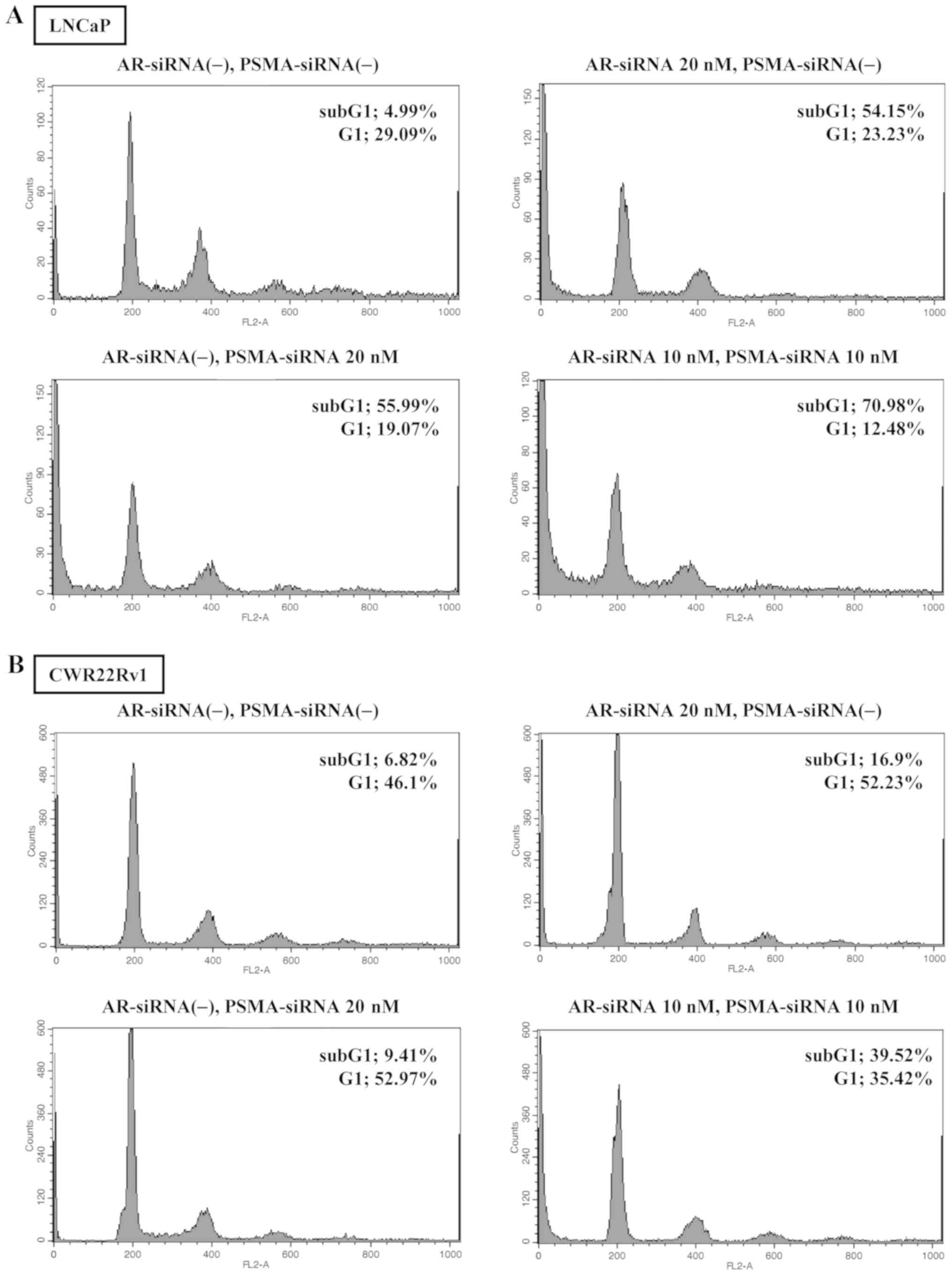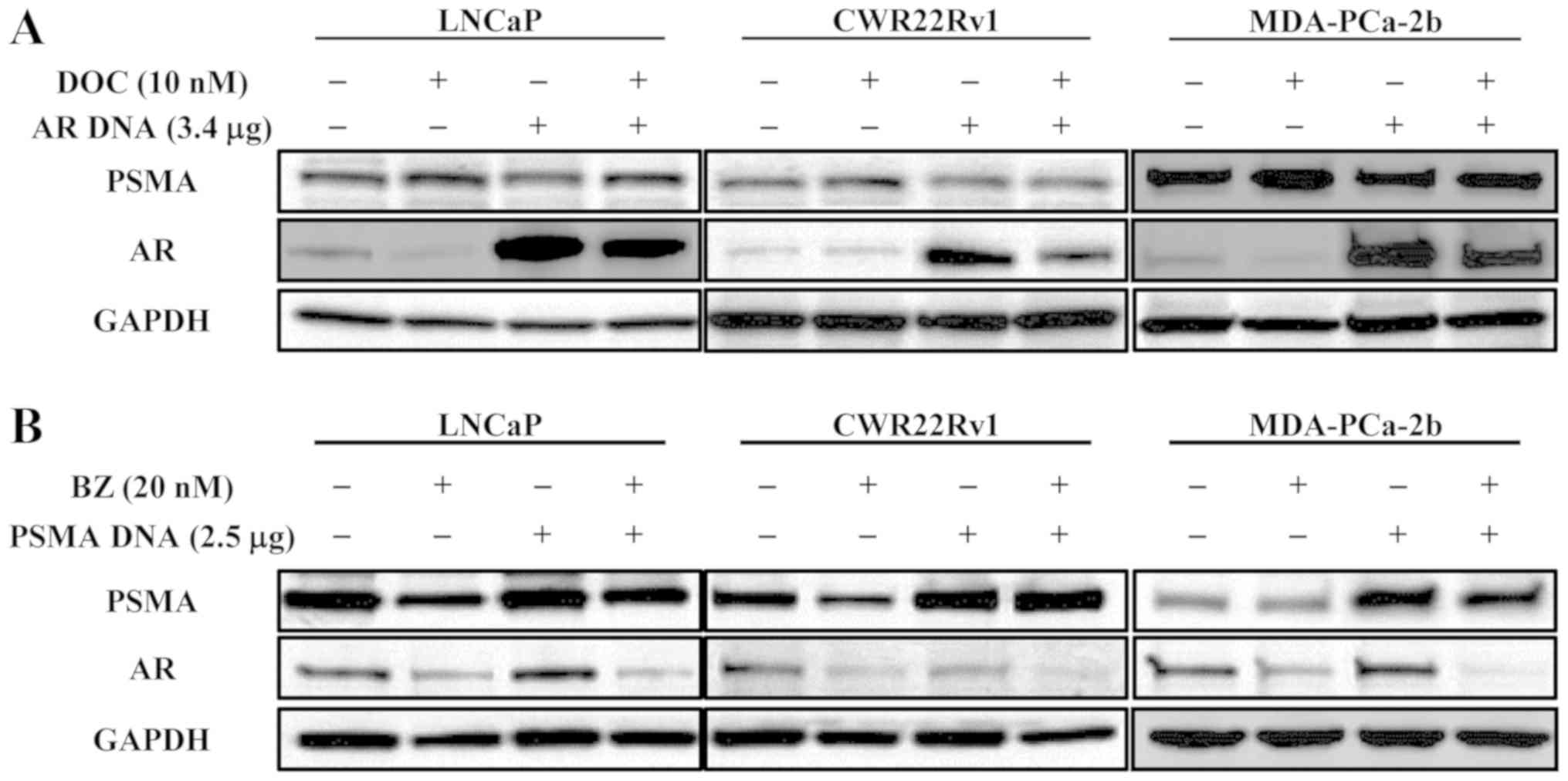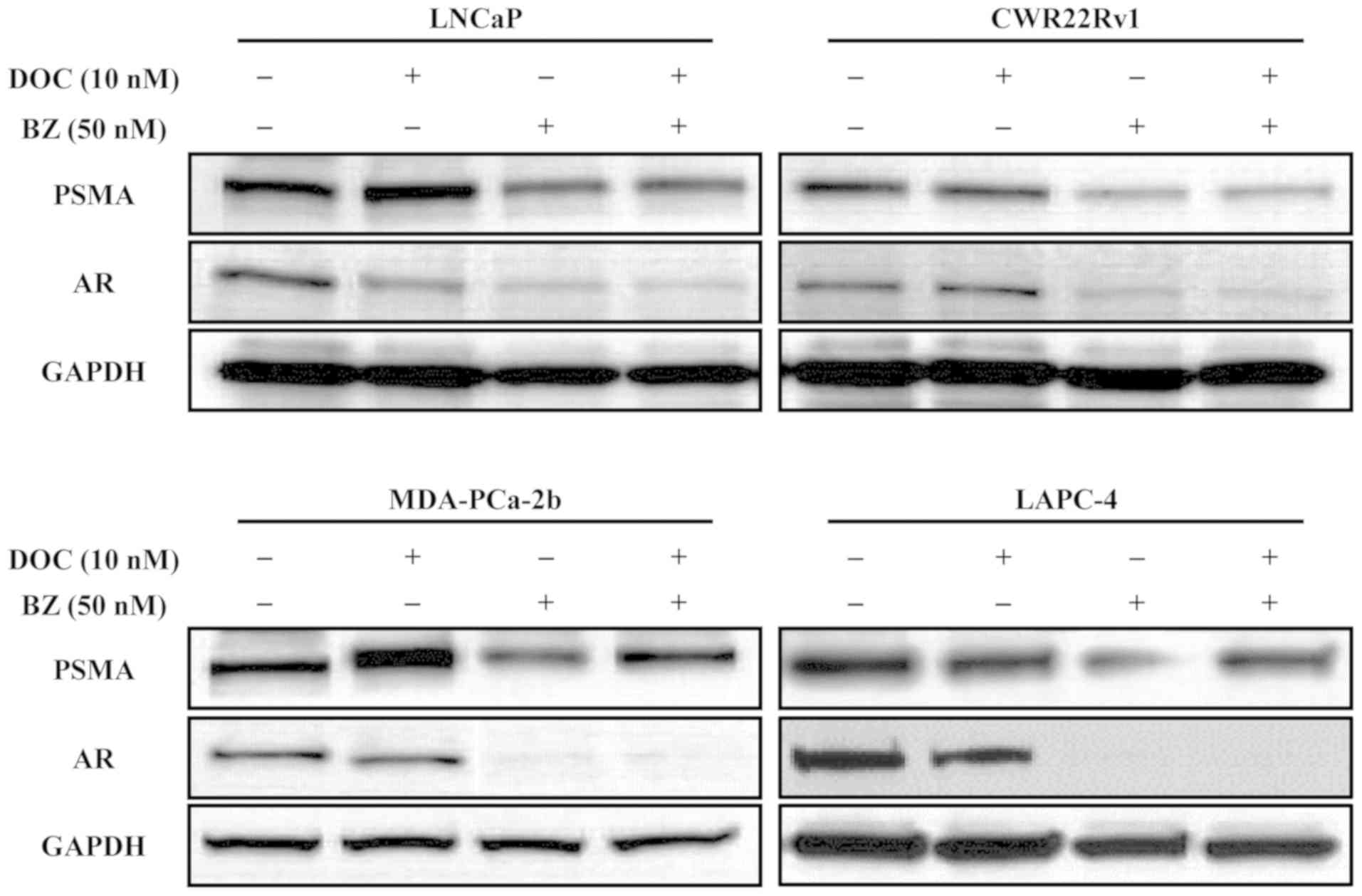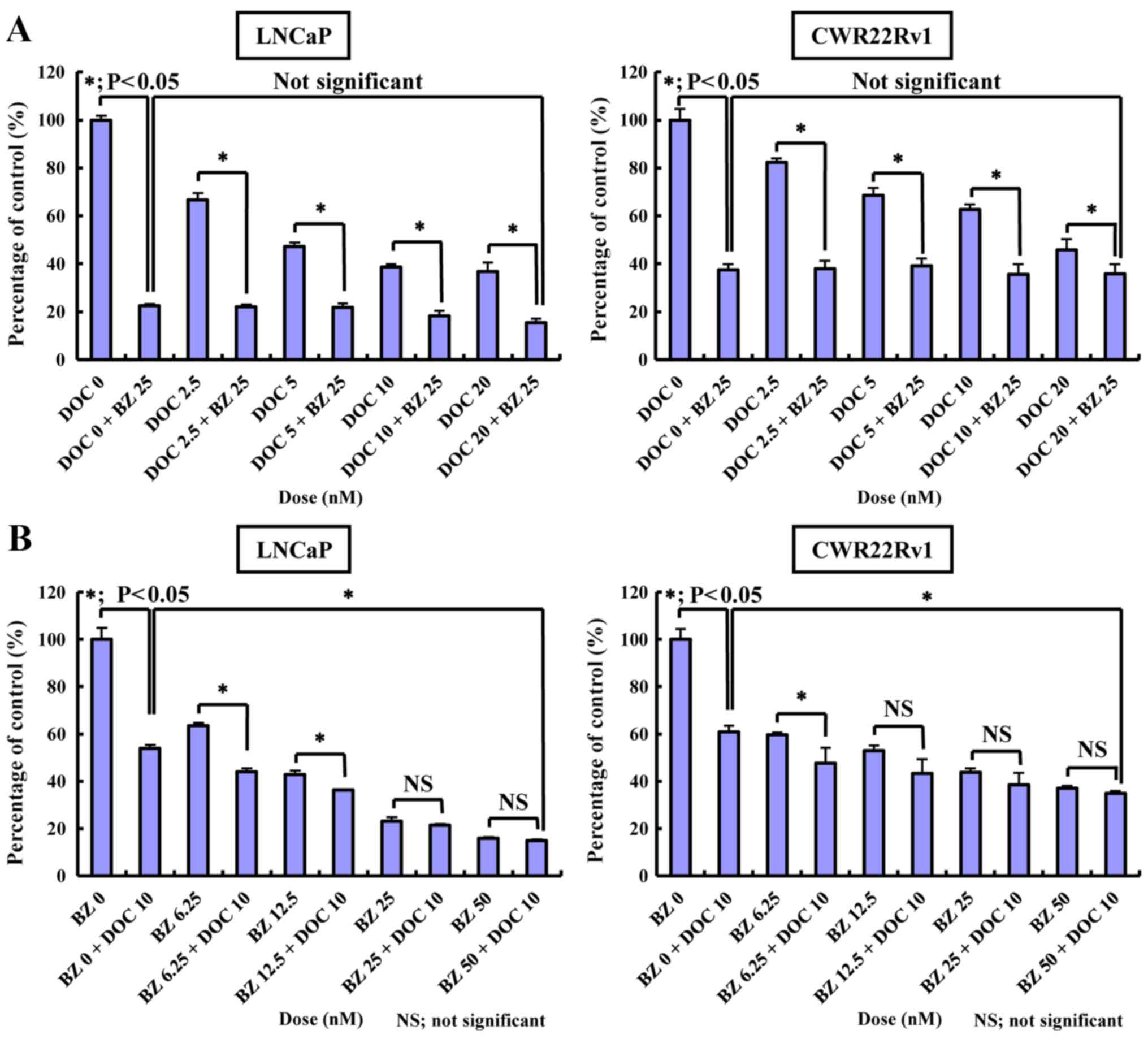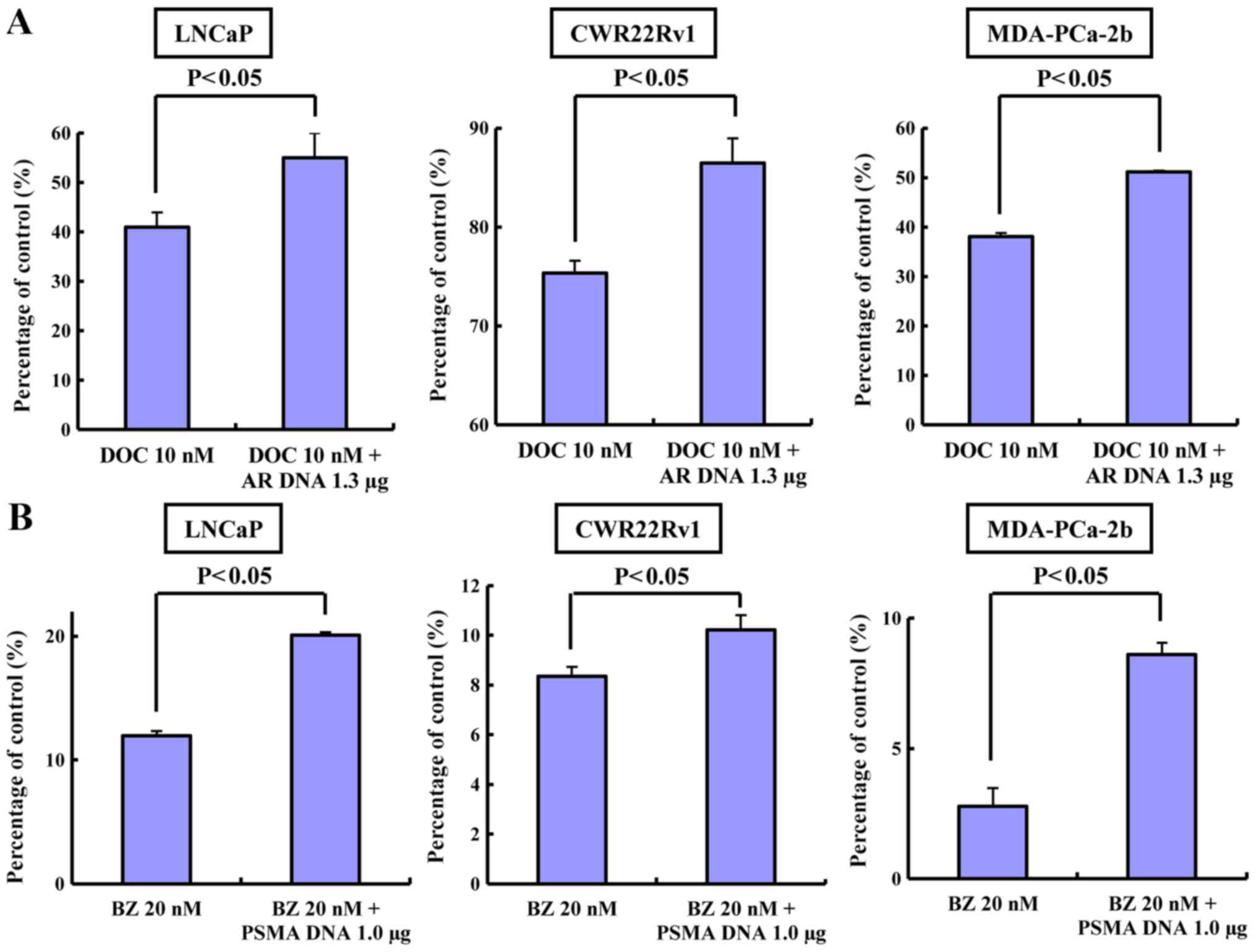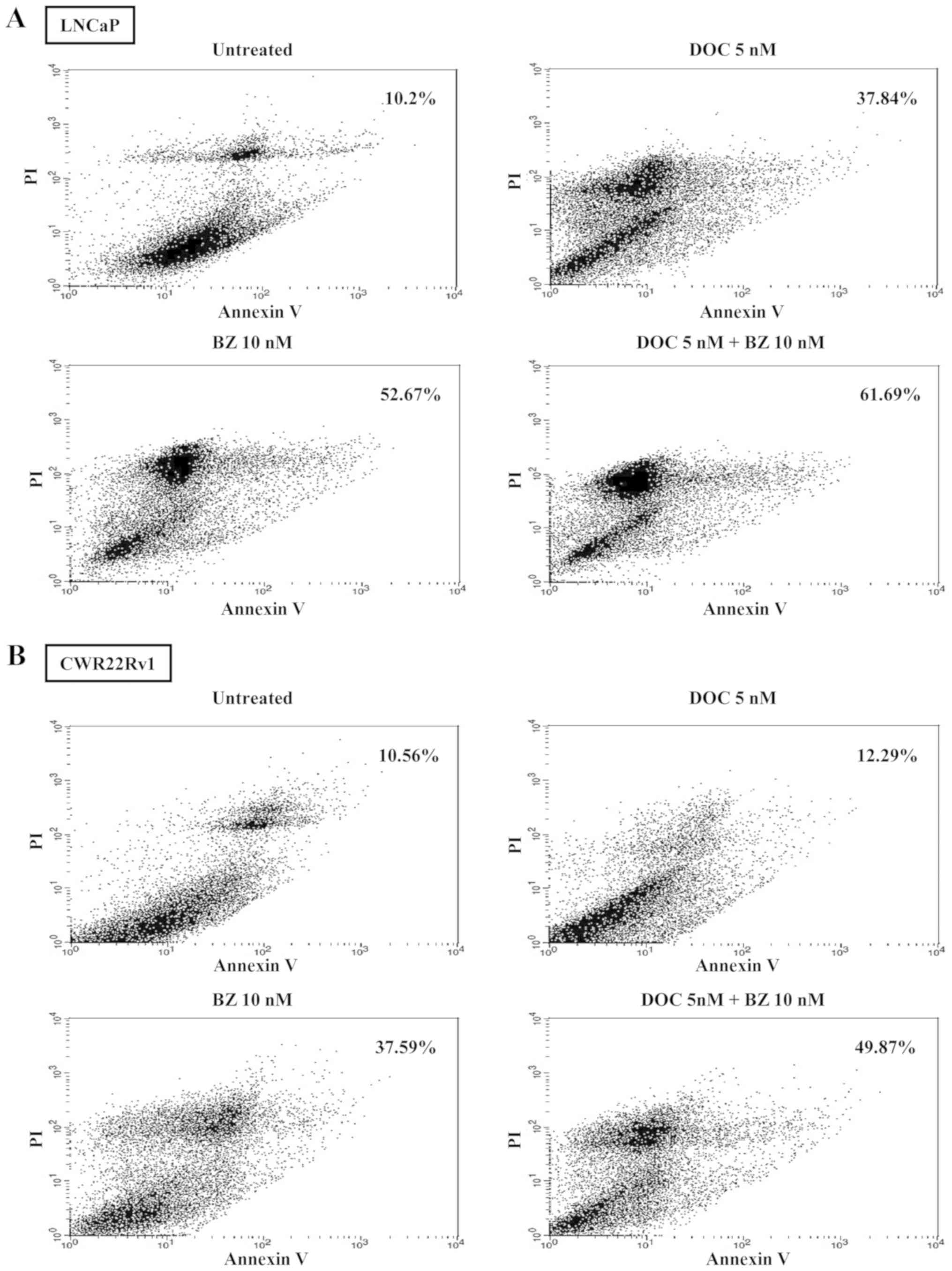|
1
|
Huggins C and Hodges CV; Studies on
prostatic cancer: I The effect of castration, of estrogen and
androgen injection on serum phosphatases in metastatic carcinoma of
the prostate CA. Cancer J Clin. 22:232–240. 1972. View Article : Google Scholar
|
|
2
|
Brawer MK, Crawford ED, Labrie F,
Mendoza-Valdes A, Miller PDPD and Petrylak DP: Androgen deprivation
and other treatments for advanced prostate cancer. Rev Urol.
3(Suppl 2): S59–S68. 2001.
|
|
3
|
Labrie F: Medical castration with LHRH
agonists: 25 years later with major benefits achieved on survival
in prostate cancer. J Androl. 25:305–313. 2004. View Article : Google Scholar : PubMed/NCBI
|
|
4
|
Feldman BJ and Feldman D: The development
of androgen-independent prostate cancer. Nat Rev Cancer. 1:34–45.
2001. View
Article : Google Scholar
|
|
5
|
Ross JS, Sheehan CE, Fisher HAG, Kaufman
RP Jr, Kaur P, Gray K, Webb I, Gray GS, Mosher R and Kallakury BV:
Correlation of primary tumor prostate-specific membrane antigen
expression with disease recurrence in prostate cancer. Clin Cancer
Res. 9:6357–6362. 2003.PubMed/NCBI
|
|
6
|
Wright GL Jr, Grob BM, Haley C, Grossman
K, Newhall K, Petrylak D, Troyer J, Konchuba A, Schellhammer PF and
Moriarty R: Upregulation of prostate-specific membrane antigen
after androgen-deprivation therapy. Urology. 48:326–334. 1996.
View Article : Google Scholar : PubMed/NCBI
|
|
7
|
Chang SS, Keefe DS, Bacich DJ, Reuter VE,
Heston WD and Gaudin PB: Advances in brief prostate-specific
membrane antigen is produced in tumor. Clin Cancer Res.
5:2674–2681. 1999.PubMed/NCBI
|
|
8
|
Liu H, Moy P, Kim S, Xia Y, Rajasekaran A,
Navarro V, Knudsen B and Bander NH: Monoclonal antibodies to the
extracellular domain of prostate-specific membrane antigen also
react with tumor vascular endothelium. Cancer Res. 57:3629–3634.
1997.PubMed/NCBI
|
|
9
|
Adams J: Proteasome inhibitors as new
anticancer drugs. Curr Opin Oncol. 14:628–634. 2002. View Article : Google Scholar : PubMed/NCBI
|
|
10
|
LeBlanc R, Catley LP, Hideshima T,
Lentzsch S, Mitsiades CS, Mitsiades N, Neuberg D, Goloubeva O, Pien
CS, Adams J, et al: Proteasome inhibitor PS-341 inhibits human
myeloma cell growth in vivo and prolongs survival in a murine
model. Cancer Res. 62:4996–5000. 2002.PubMed/NCBI
|
|
11
|
Hideshima T, Chauhan D, Richardson P,
Mitsiades C, Mitsiades N, Hayashi T, Munshi N, Dang L, Castro A,
Palombella V, et al: NF-κB as a therapeutic target in multiple
myeloma. J Biol Chem. 277:16639–16647. 2002. View Article : Google Scholar : PubMed/NCBI
|
|
12
|
Mitsiades N, Mitsiades CS, Poulaki V,
Chauhan D, Fanourakis G, Gu X, Bailey C, Joseph M, Libermann TA,
Treon SP, et al: Molecular sequelae of proteasome inhibition in
human multiple myeloma cells. Proc Natl Acad Sci USA.
99:14374–14379. 2002. View Article : Google Scholar : PubMed/NCBI
|
|
13
|
Orlowski RZ, Stinchcombe TE, Mitchell BS,
Shea TC, Baldwin AS, Stahl S, Adams J, Esseltine DL, Elliott PJ,
Pien CS, et al: Phase I trial of the proteasome inhibitor PS-341 in
patients with refractory hematologic malignancies. J Clin Oncol.
20:4420–4427. 2002. View Article : Google Scholar : PubMed/NCBI
|
|
14
|
Mitsiades N, Mitsiades CS, Richardson PG,
Poulaki V, Tai YT, Chauhan D, Fanourakis G, Gu X, Bailey C, Joseph
M, et al: The proteasome inhibitor PS-341 potentiates sensitivity
of multiple myeloma cells to conventional chemotherapeutic agents:
Therapeutic applications. Blood. 101:2377–2380. 2003. View Article : Google Scholar
|
|
15
|
Ma MH, Yang HH, Parker K, Manyak S,
Friedman JM, Altamirano C, Wu ZQ, Borad MJ, Frantzen M, Roussos E,
et al: The proteasome inhibitor PS-341 markedly enhances
sensitivity of multiple myeloma tumor cells to chemotherapeutic
agents. Clin Cancer Res. 9:1136–1144. 2003.PubMed/NCBI
|
|
16
|
Hideshima T, Richardson P, Chauhan D,
Palombella VJ, Elliott PJ, Adams J and Anderson KC: The proteasome
inhibitor PS-341 inhibits growth, induces apoptosis, and overcomes
drug resistance in human multiple myeloma cells. Cancer Res.
61:3071–3076. 2001.PubMed/NCBI
|
|
17
|
Richardson PG, Barlogie B, Berenson J,
Singhal S, Jagannath S, Irwin D, Rajkumar SV, Srkalovic G, Alsina
M, Alexanian R, et al: A phase 2 study of bortezomib in relapsed,
refractory myeloma. N Engl J Med. 348:2609–2617. 2003. View Article : Google Scholar : PubMed/NCBI
|
|
18
|
Kuroda K, Liu H, Kim S, Guo M, Navarro V
and Bander NH: Docetaxel down-regulates the expression of androgen
receptor and prostate-specific antigen but not prostate-specific
membrane antigen in prostate cancer cell lines: Implications for
PSA surrogacy. Prostate. 69:1579–1585. 2009. View Article : Google Scholar : PubMed/NCBI
|
|
19
|
Compagno D, Merle C, Morin A, Gilbert C,
Mathieu JR, Bozec A, Mauduit C, Benahmed M and Cabon F:
SIRNA-directed in vivo silencing of androgen receptor inhibits the
growth of castration-resistant prostate carcinomas. PLoS One.
2:e10062007. View Article : Google Scholar : PubMed/NCBI
|
|
20
|
Lee UJ, Choung SR, Prakash KV, Lee EJ, Lee
MY, Kim YJ, Han CW and Choi YC: Dual knockdown of p65 and p50
subunits of NF-kappaB by siRNA inhibits the induction of
inflammatory cytokines and significantly enhance apoptosis in human
primary synoviocytes treated with tumor necrosis factor-alpha. Mol
Biol Rep. 35:291–298. 2008. View Article : Google Scholar
|
|
21
|
Israeli RS, Powell CT, Corr JG, Fair WR
and Heston WD: Expression of the prostate-specific membrane
antigen. Cancer Res. 54:1807–1811. 1994.PubMed/NCBI
|
|
22
|
Kuroda K, Liu H, Kim S, Guo M, Navarro V
and Bander NH: Saporin toxin-conjugated monoclonal antibody
targeting prostate-specific membrane antigen has potent anticancer
activity. Prostate. 70:1286–1294. 2010.PubMed/NCBI
|
|
23
|
Bravaccini S, Puccetti M, Bocchini M,
Ravaioli S, Celli M, Scarpi E, De Giorgi U, Tumedei MM, Raulli G,
Cardinale L, et al: PSMA expression: A potential ally for the
pathologist in prostate cancer diagnosis. Sci Rep. 8:42542018.
View Article : Google Scholar : PubMed/NCBI
|
|
24
|
Minner S, Wittmer C, Graefen M, Salomon G,
Steuber T, Haese A, Huland H, Bokemeyer C, Yekebas E, Dierlamm J,
et al: High level PSMA expression is associated with early PSA
recurrence in surgically treated prostate cancer. Prostate.
71:281–288. 2011. View Article : Google Scholar
|
|
25
|
Khurana N, Talwar S, Chandra PK, Sharma P,
Abdel-Mageed AB, Mondal D and Sikka SC: Sulforaphane increases the
efficacy of anti-androgens by rapidly decreasing androgen receptor
levels in prostate cancer cells. Int J Oncol. 49:1609–1619. 2016.
View Article : Google Scholar : PubMed/NCBI
|
|
26
|
Komura K, Jeong SH, Hinohara K, Qu F, Wang
X, Hiraki M, Azuma H, Lee GS, Kantoff PW and Sweeney CJ: Resistance
to docetaxel in prostate cancer is associated with androgen
receptor activation and loss of KDM5D expression. Proc Natl Acad
Sci USA. 113:6259–6264. 2016. View Article : Google Scholar
|
|
27
|
Williams S, Pettaway C, Song R, Papandreou
C, Logothetis C and McConkey DJ: Differential effects of the
proteasome inhibitor bortezomib on apoptosis and angiogenesis in
human prostate tumor xenografts. Mol Cancer Ther. 2:835–843.
2003.PubMed/NCBI
|
|
28
|
Papandreou CN and Logothetis CJ:
Bortezomib as a potential treatment for prostate cancer. Cancer
Res. 64:5036–5043. 2004. View Article : Google Scholar : PubMed/NCBI
|
|
29
|
Codony-Servat J, Tapia MA, Bosch M, Oliva
C, Domingo-Domenech J, Mellado B, Rolfe M, Ross JS, Gascon P,
Rovira A, et al: Differential cellular and molecular effects of
bortezomib, a proteasome inhibitor, in human breast cancer cells.
Mol Cancer Ther. 5:665–675. 2006. View Article : Google Scholar : PubMed/NCBI
|
|
30
|
Lohiya V, Aragon-Ching JB and Sonpavde G:
Role of chemotherapy and mechanisms of resistance to chemotherapy
in metastatic castration-resistant prostate cancer. Clin Med
Insights Oncol. 10(Suppl 1): 57–66. 2016.PubMed/NCBI
|
|
31
|
Aras B and Yerlikaya A: Bortezomib and
etoposide combinations exert synergistic effects on the human
prostate cancer cell line PC-3. Oncol Lett. 11:3179–3184. 2016.
View Article : Google Scholar : PubMed/NCBI
|
|
32
|
Cao W, Shiverick KT, Namiki K, Sakai Y,
Porvasnik S, Urbanek C and Rosser CJ: Docetaxel and bortezomib
downregulate Bcl-2 and sensitize PC-3-Bcl-2 expressing prostate
cancer cells to irradiation. World J Urol. 26:509–516. 2008.
View Article : Google Scholar : PubMed/NCBI
|
|
33
|
Christian PA, Thorpe JA and Schwarze SR:
Velcade sensitizes prostate cancer cells to TRAIL induced apoptosis
and suppresses tumor growth in vivo. Cancer Biol Ther. 8:73–80.
2009. View Article : Google Scholar
|
|
34
|
Thorpe JA, Christian PA and Schwarze SR:
Proteasome inhibition blocks caspase-8 degradation and sensitizes
prostate cancer cells to death receptor-mediated apoptosis.
Prostate. 68:200–209. 2008. View Article : Google Scholar
|
|
35
|
Janyst K, Janyst M, Siernicka M and Lasek
W: Synergistic antitumor effects of histone deacetylase inhibitor
scriptaid and bortezomib against ovarian cancer cells. Oncol Rep.
39:1999–2005. 2018.PubMed/NCBI
|
|
36
|
Iida S, Ichinohe T, Shinagawa A, Suzuki K,
Takezako N and Aoki M: Safety and efficacy of daratumumab in
combination with bortezomib and dexamethasone in Japanese patients
with relapsed or refractory multiple myeloma. Int J Hematol.
107:460–467. 2018. View Article : Google Scholar
|
|
37
|
Wehenkel M, Ban JO, Ho YK, Carmony KC,
Hong JT and Kim KB: A selective inhibitor of the immunoproteasome
subunit LMP2 induces apoptosis in PC-3 cells and suppresses tumour
growth in nude mice. Br J Cancer. 107:53–62. 2012. View Article : Google Scholar : PubMed/NCBI
|
|
38
|
Kraft AS, Garrett-Mayer E, Wahlquist AE,
Golshayan A, Chen CS, Butler W, Bearden J and Lilly M: Combination
therapy of recurrent prostate cancer with the proteasome inhibitor
bortezomib plus hormone blockade. Cancer Biol Ther. 12:119–124.
2011. View Article : Google Scholar : PubMed/NCBI
|
|
39
|
Hainsworth JD, Meluch AA, Spigel DR,
Barton J Jr, Simons L, Meng C, Gould B and Greco FA: Weekly
docetaxel and bortezomib as first-line treatment for patients with
hormone-refractory prostate cancer: A Minnie Pearl Cancer Research
Network phase II trial. Clin Genitourin Cancer. 5:278–283. 2007.
View Article : Google Scholar : PubMed/NCBI
|















